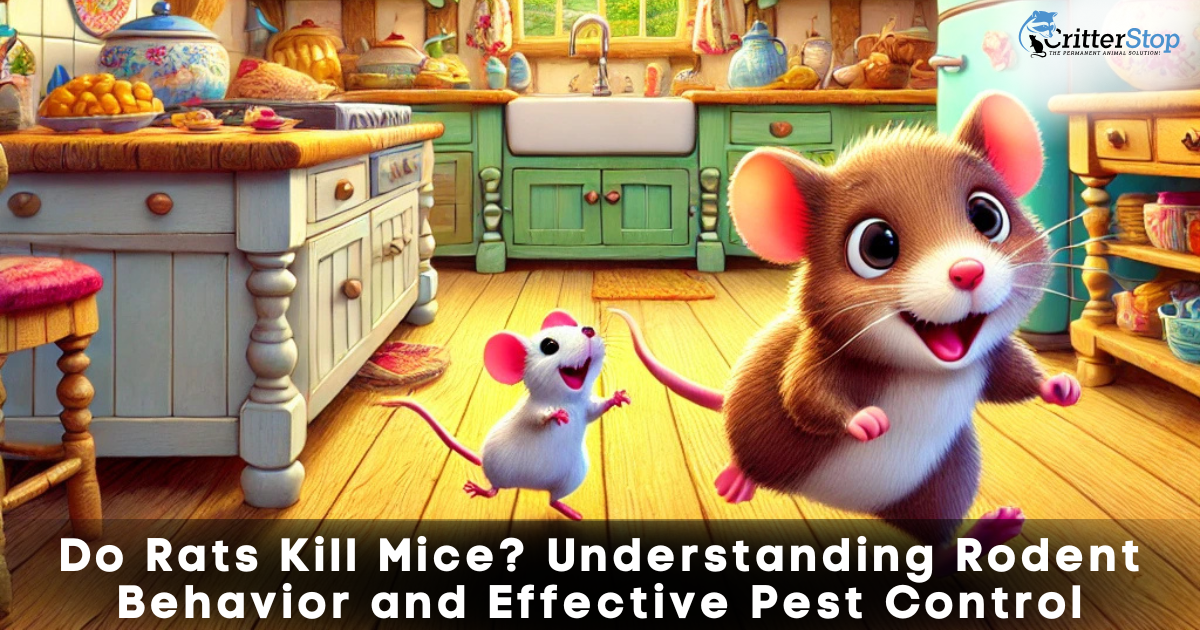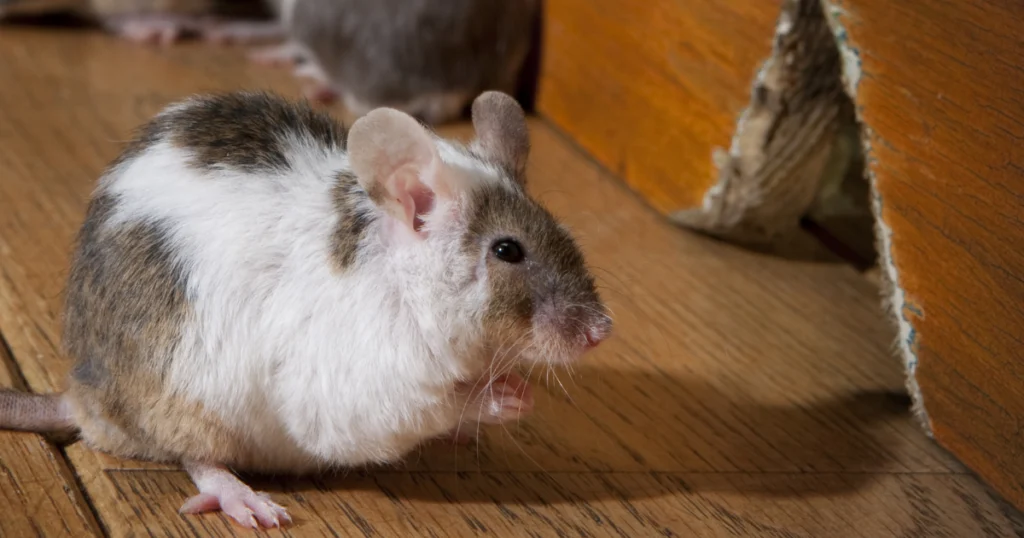
Rodents, particularly rats and mice, are common pests that can invade homes, businesses, and agricultural spaces. Their interactions raise intriguing questions: Do rats kill mice, and why? Similarly, concerns like whether mice kill each other shed light on the competitive and survival-driven nature of these small mammals. This article explores these dynamics in depth and provides actionable solutions to rodent problems, emphasizing the benefits of professional help from us at Critter Stop, your trusted humane wildlife removal company.

Rats are highly territorial and aggressive when it comes to protecting their resources. Larger and stronger than mice, rats often dominate shared spaces. When food, shelter, or breeding grounds are limited, rats kill mice to eliminate competition.
This behavior is not predatory in nature but rather a survival strategy. Species like the Norway rat (Rattus norvegicus) are particularly aggressive, often attacking and killing mice that invade their territory.

Although generally less aggressive than rats, mice are not immune to territorial and social disputes. Questions like "Will mice kill each other?" and "Do mice kill each other?" are valid concerns. Male mice, in particular, are prone to aggression, especially when competing for resources or mates.
Yes, male mice can become highly aggressive in overcrowded or resource-scarce environments. The key triggers include:
Rats and mice can coexist temporarily in environments where food and shelter are abundant. However, when resources dwindle, conflict arises. Rats' natural inclination to dominate and outcompete smaller rodents determines whether they will kill mice.
Unlike mice, rats have the advantage of size and strength, making them more likely to eliminate perceived threats like mice in their territory.
Understanding these behaviors highlights the complexity of rodent infestations. Misconceptions, such as believing the presence of rats will automatically deter mice, can lead to ineffective pest control strategies. Both species can coexist, leading to larger infestations and significant health risks.

Critter Stop is the answer if you're struggling with rodent infestations and searching for a humane, effective solution. Critter Stop is a professional wildlife removal company specializing in mice extermination and provides tailored pest control services. Here's why they stand out:
Don’t let mice or rats compromise your home or business. Call Critter Stop today to schedule an inspection and get rid of rodents for good.
Both rats and mice pose significant risks to health and property. Their presence can lead to:
At Critter Stop, we take a holistic approach to rodent control, ensuring long-term results. Our proven process includes the following:

The interactions between rats and mice—whether rats kill mice or will mice kill each other—are rooted in their survival instincts and competitive nature. Addressing these dynamics is crucial for effective pest control. If you're dealing with a rodent problem, the solution lies in professional expertise and a comprehensive approach.
Contact us at Critter Stop today at 214-380-1667 for your mice exterminator needs. Our stellar reputation for high-quality work and exceptional customer service makes us your trusted choice for humane and effective rodent control.
Visit our Critter Library and learn more about our furry friends